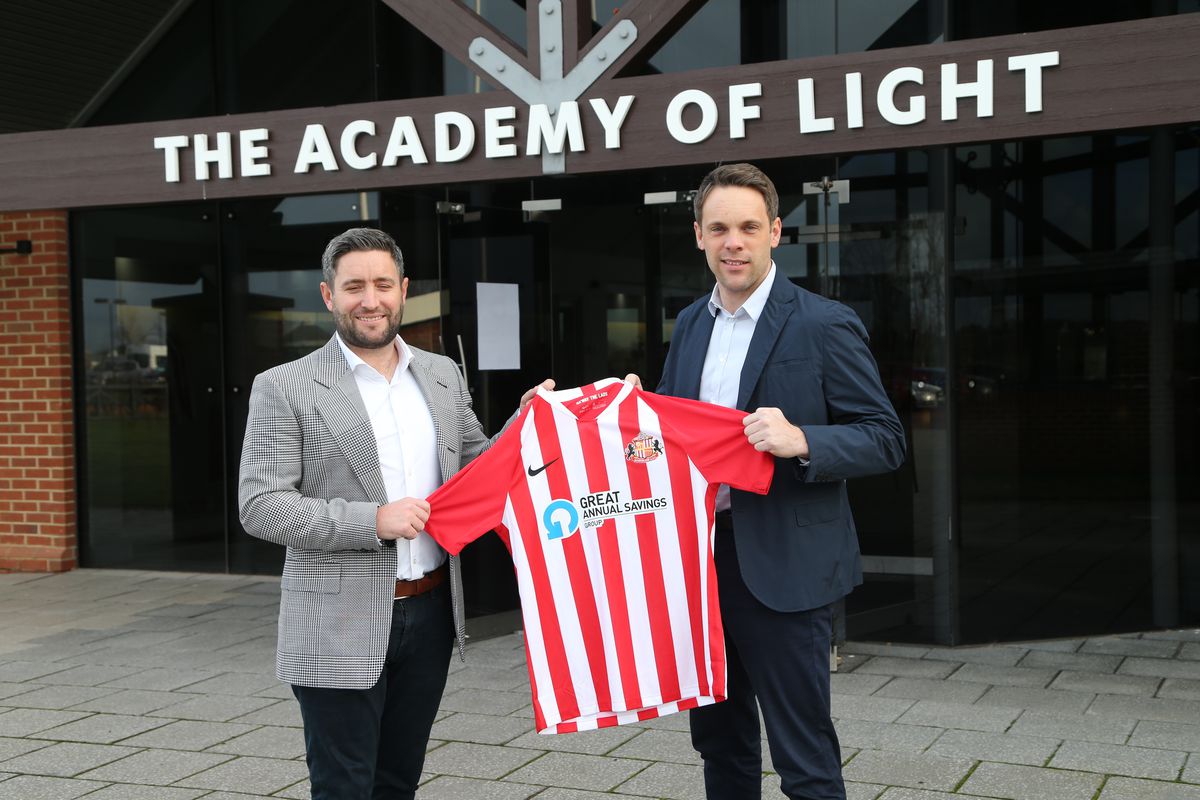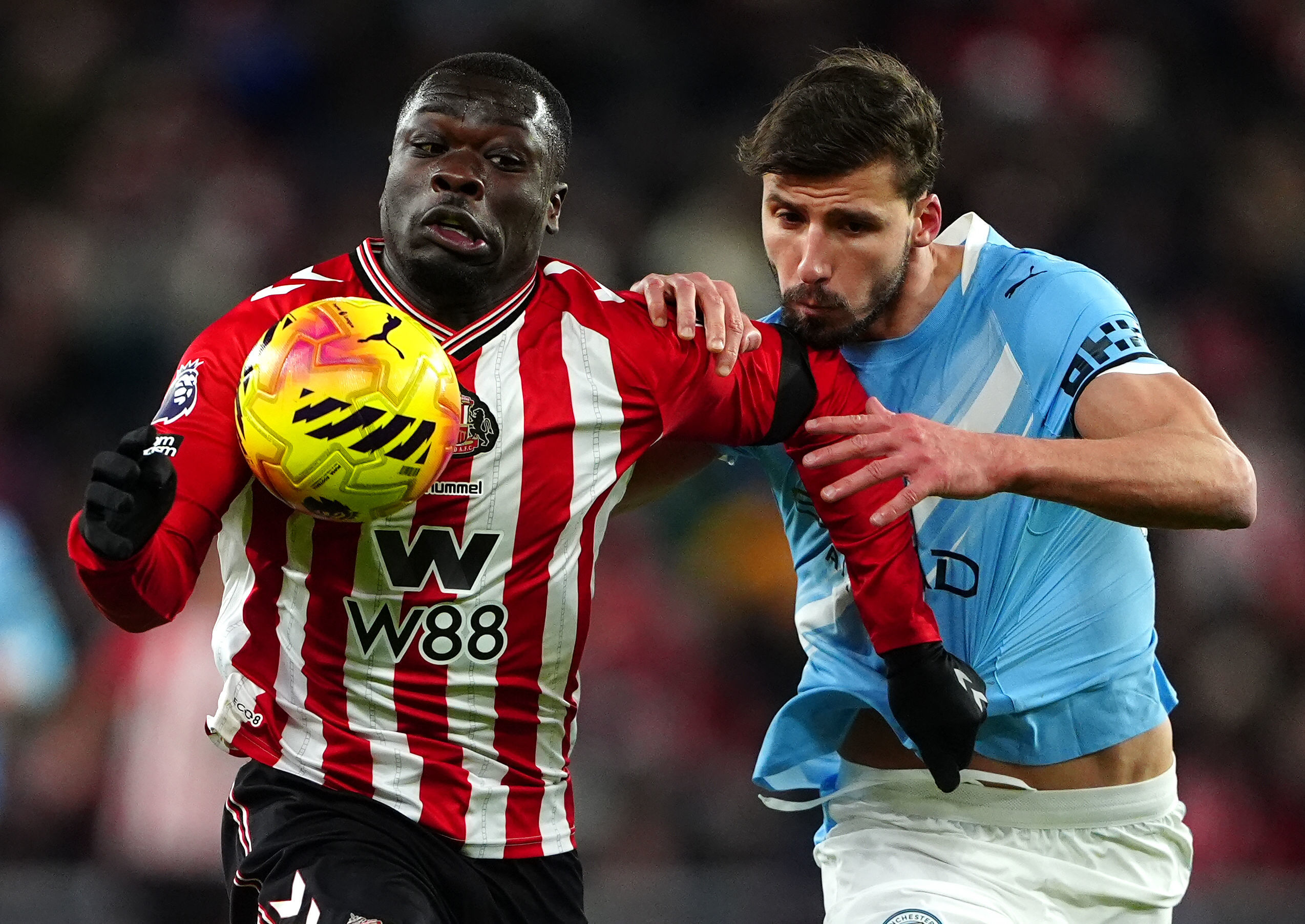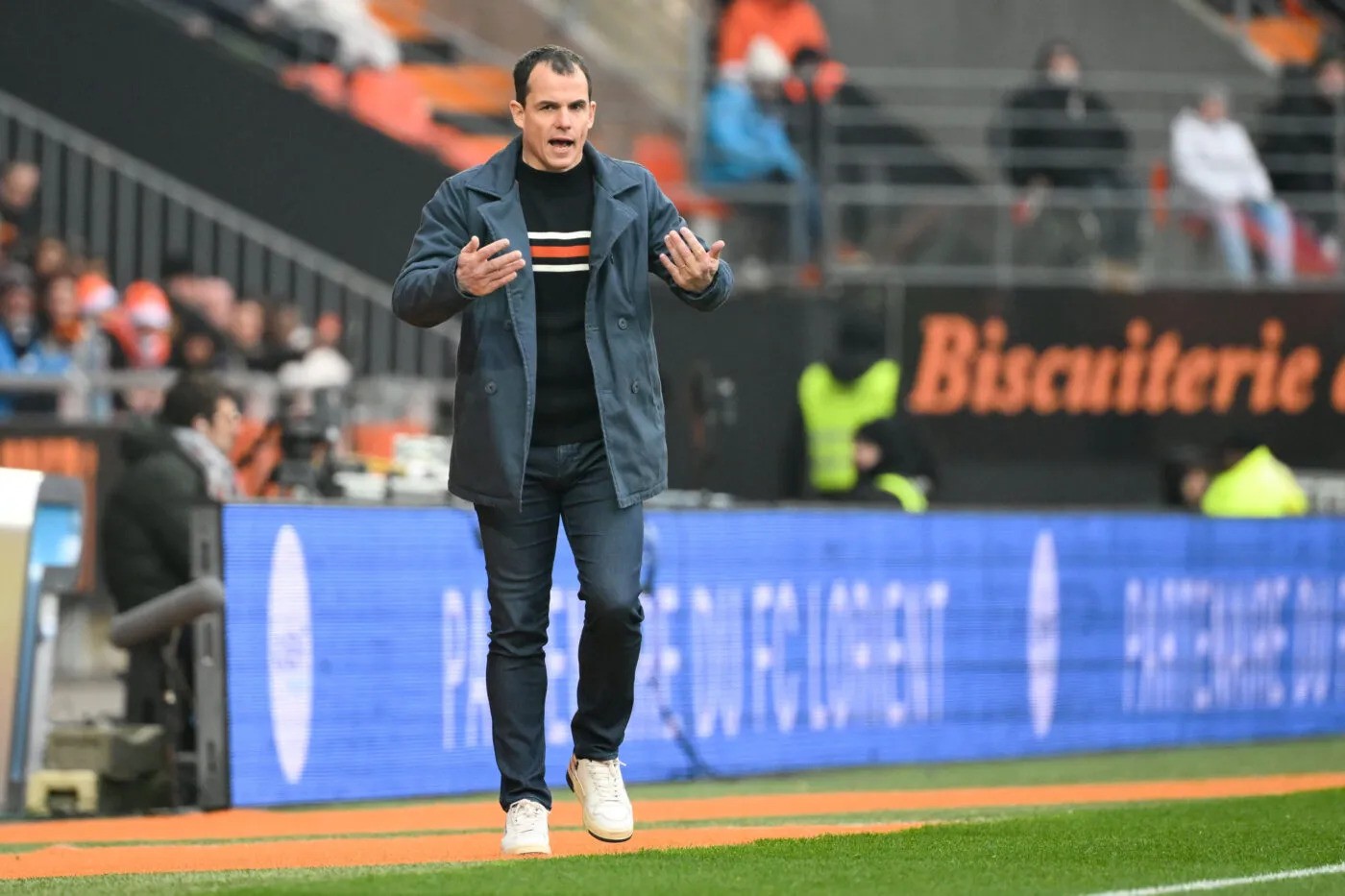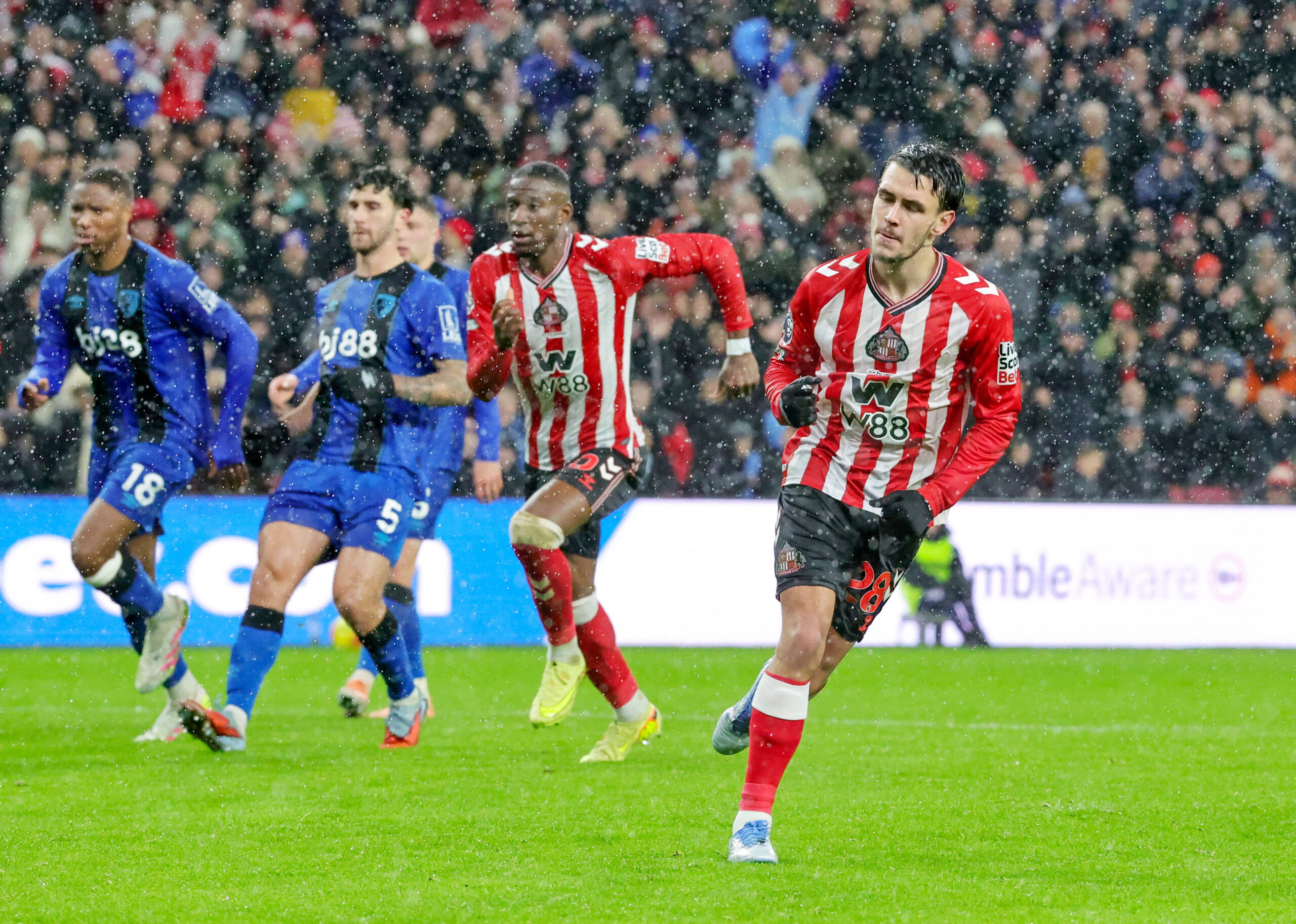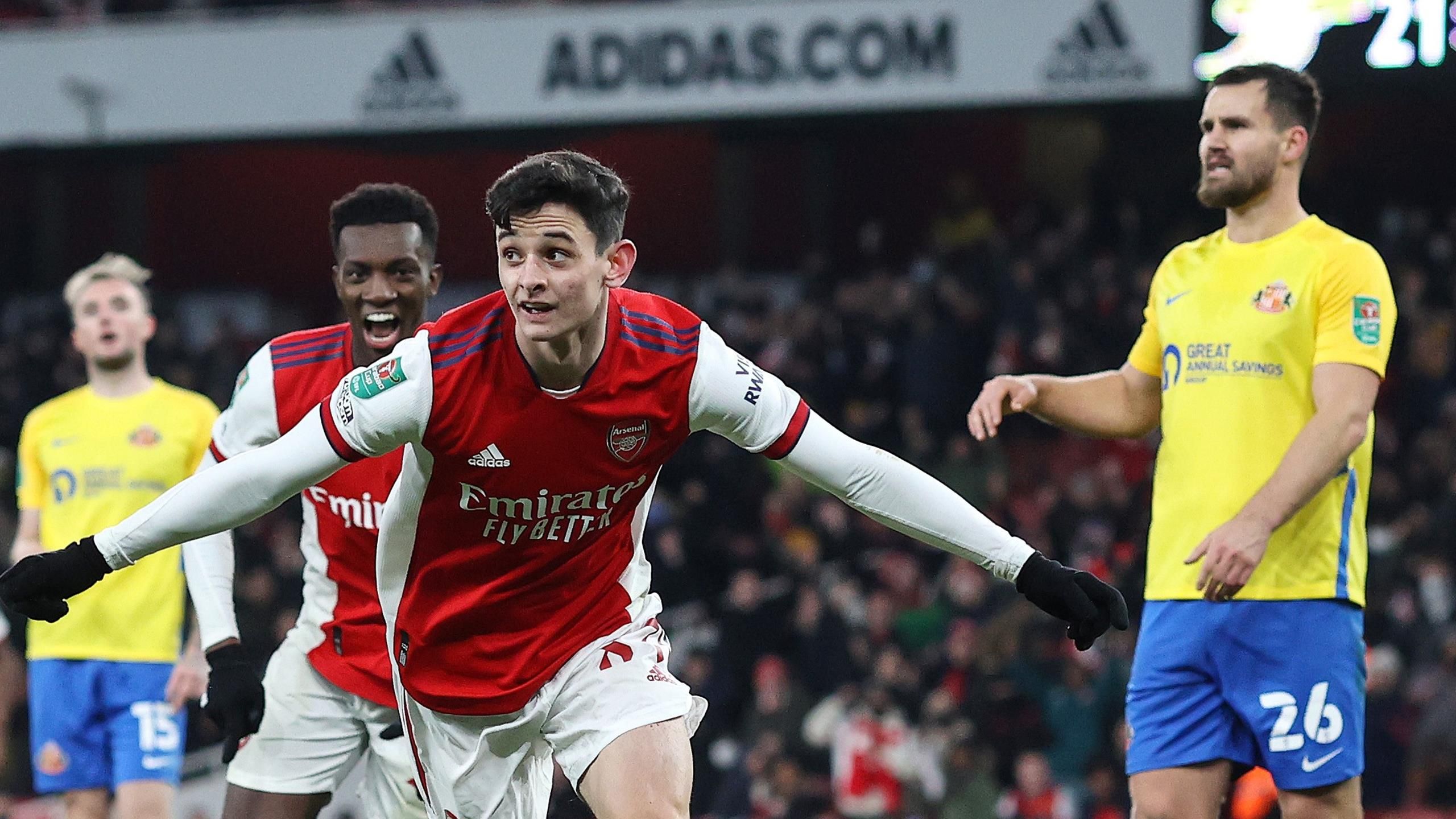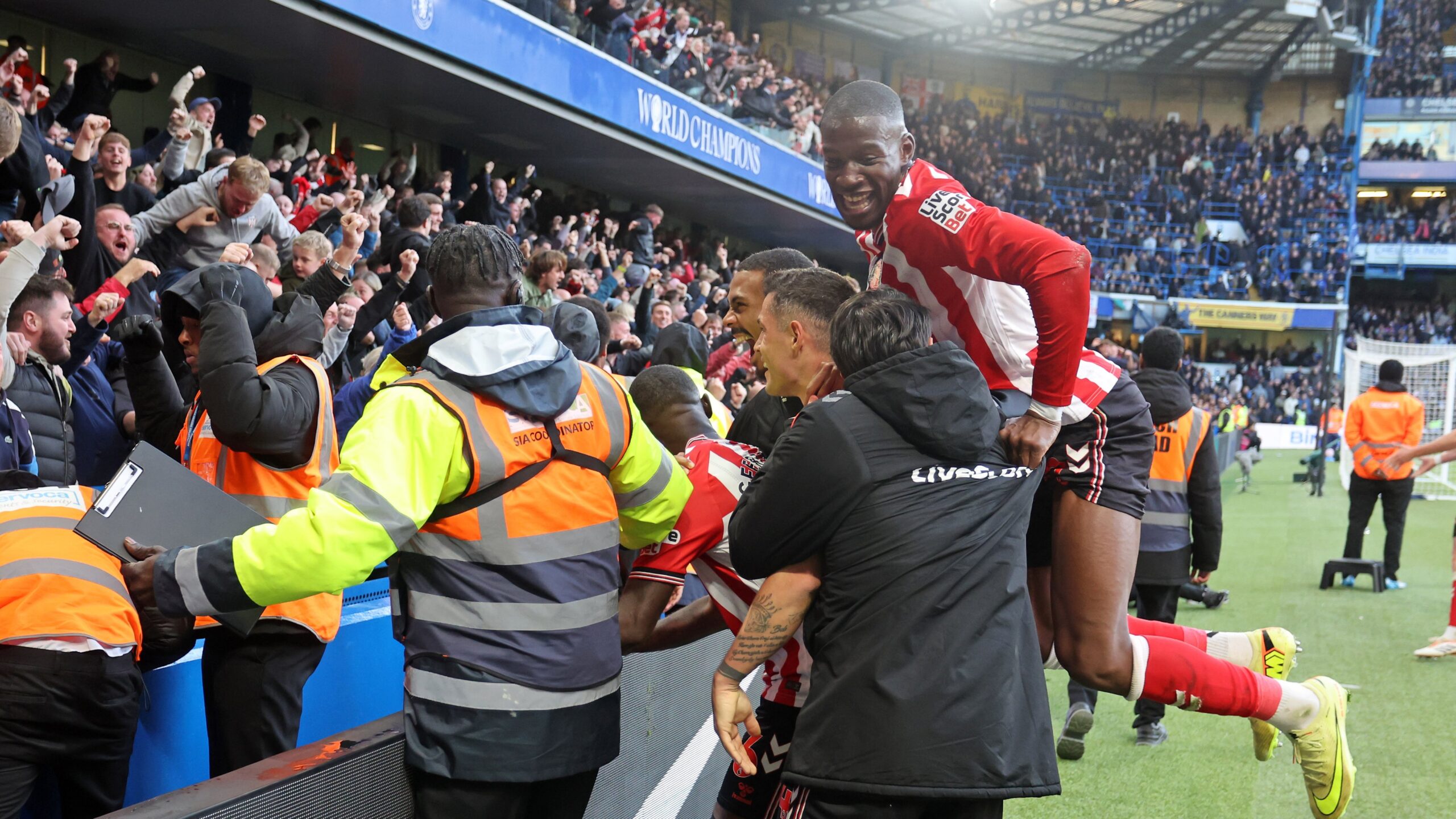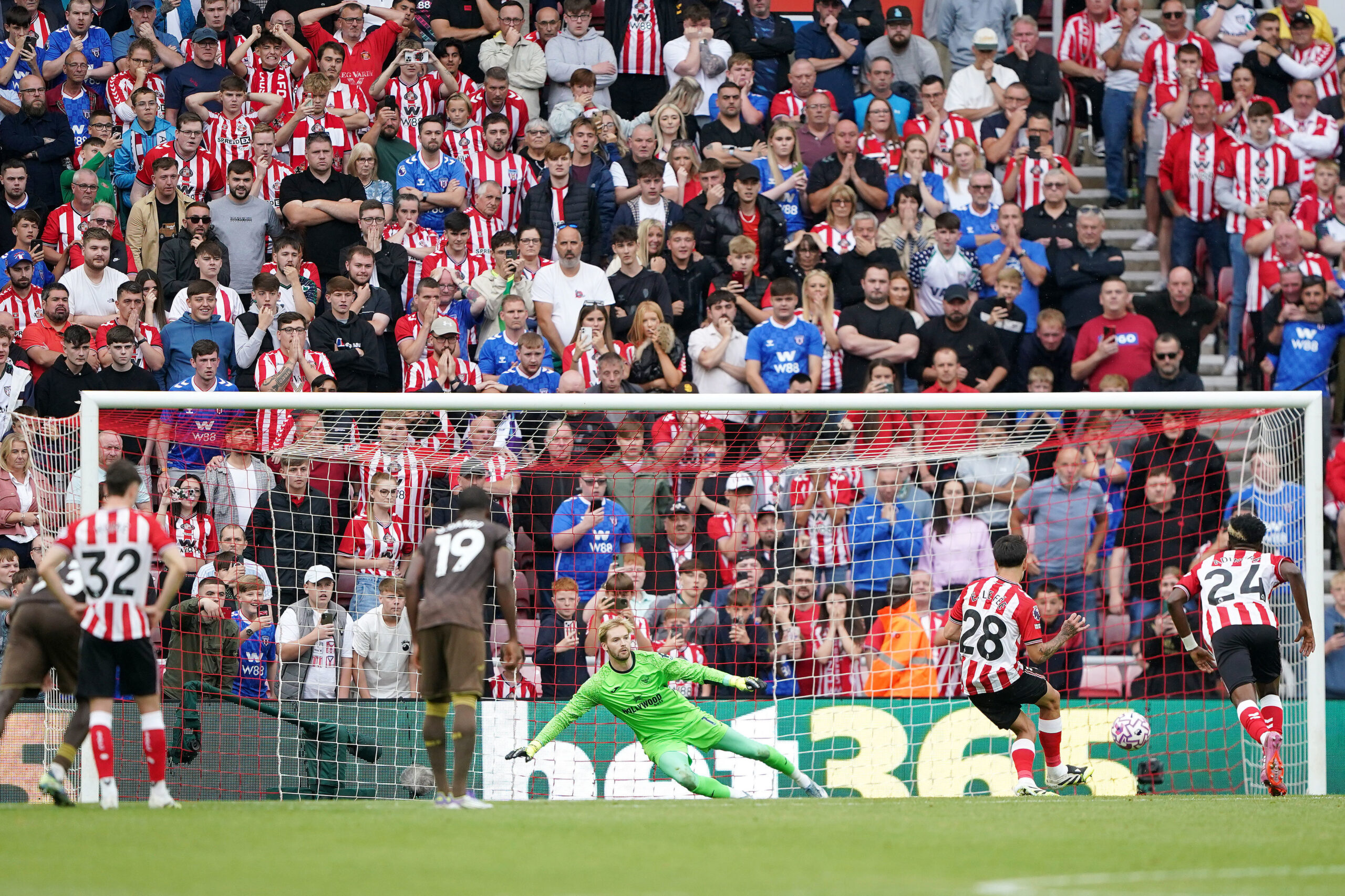It is the late 1990s and for Kristjaan Speakman, it is all about serendipity. The right place at the right time, you might say.
Reportedly offered a coaching opportunity while sitting in his sixth form common room, Sunderland’s Sporting Director first placed a provisional toe on the footballing ladder at a young age. It is a journey that has taken in stops at home town club Derby County along with Birmingham City, and in varying roles too, including Scout, Coach and latterly Academy Manager.
Now, as two years service here on Wearside approaches at the end of the year and with promotion back to the Championship secured, Speakman’s tenure has undoubtedly coincided with the Black Cats achieving a degree of success. Certainly they are higher up the footballing pyramid than when he first joined. Yet, how much credit should he take for the achievements, and what can we expect next?
The good and the bad – let’s take a look.
In the beginning there was Donald
In December 2020, the Louis-Dreyfus era had yet to be finalised. Still, it is likely the looming young billionaire was instrumental in Speakman’s arrival. Technically though his appointment as Sporting Director was made under Donald’s stewardship. It was the first such role on Wearside since December 2015 and the disappointment of Lee Congerton, which still faintly lingered around SR5. Nevertheless, it underscored a change in the club’s recent strategy.
So, how did he go from common room to the Black Cats boardroom?
Sunderland AFC engaged Executives in Sports Group back in late 2020 to search for their new Sporting Director. The scope of the job was, as you would imagine – broad. As Speakman himself said, “If it was a Sporting Director role where the emphasis was on player recruitment then I wouldn’t be here, because that’s not really how I see it fit.” He further added, “I see that as me having autonomy over the football department to make sure there is a line across all the football departments, from top to bottom.” That being said, it could be argued the role still had a particular focus…
An Academy Manager for a Sporting Director with focus on youth development
When he first pushed open the doors at the Academy of Light, Speakman had just vacated his role as Birmingham City’s Academy Manager, a club where he had spent 14 years. It would be fair to say that job is an entirely different beast to the one he would embark upon here. In Speakman, the Black Cats recruited potential rather than experience. A totem the club would subsequently hold onto when signing players.
Yet, Sunderland’s own Academy was still reportedly high on the agenda, so the logic was there; a Sporting Director, with youth development a priority. Speakman stated at the time, “One of the things that’s important about this project is that they want to create a best-in-class Academy – they want Sunderland’s Academy to be the centrepiece of their strategy.”
If ringing endorsements from outside were needed, former Birmingham City star Jude Bellingham was one of the first to publically congratulate Speakman on his new adventure. He tweeted, “All the best & thanks for everything” further adding, “Great signing! Did amazing things for a lot of lads over the years. No doubts at all that he will do the same in this new role.” Likewise, Leicester City’s Demarai Gray was full of praise.
If anything of substance can be established here it is that Speakman was highly regarded as an Academy Manager. But, as we know, one can excel at one job role without succeeding in another. As such, if truth were told, for Sunderland, he was a gamble.
Of note, upon his arrival, is the apparent focus on Sunderland’s Category One Academy being the club’s intended ‘centrepiece’. This was at odds with the approach that had up until that point seen a firesale of assets. Following the departures of youngsters;
- Logan Pye and Joe Hugill, sold for reportedly six figure fees to Manchester United,
- Josh Maja to Bordeaux for £3.5mil,
- Bali Mumba to Norwich for 350k,
- Sam Greenwood to Arsenal for 500k and
- Luca Stephenson (dubbed the next Jordan Henderson) to Liverpool for 200k
All exits before his arrival of course. But, the scale of the challenge for Speakman here was surely laid bare. Thankfully, with the likes of Dan Neil and Anthony Patterson squirreled away in a corner, there were still hidden gems left to work with.
On the subject of the Academy, until very recently two important roles remained vacant. Of most concern was the fact that Elliott Dickman departed as U23 Manager back in October 2021. Thankfully that opening has been addressed. Having transitioned the U23 role into that of an U21 boss with added responsibility, the club have just appointed former Rangers man Graeme Murty as Head of Professional Development Phase.
However, Lewis Dickman left his job of Academy manager in August after just 18 months and that has yet to be filled. Posts of this type should be considered pillars in the development of Sunderland’s youngsters. These crucial gaps in the club’s behind the scenes infrastructure (often lauded as having everything in place) can only negatively impact the Academy’s longer-term goals when they remain unfilled for long. It is true there are plenty of plates for Speakman to spin and whilst it is indeed one down, one to go, questions still remain how this matter has been allowed to drift for so long, given their importance. Surely attention must turn to filling both roles ASAP if the Academy is to evolve into the promised ‘centrepiece’ of Sunderland AFC.
Looking through windows (Recruitment)
With Speakman perhaps considered somewhat of a gamble when he first joined the Black Cats, all eyes were naturally on his first move. And that, unfortunately for many supporters, was appointing Lee Johnson as Head Coach.
Early stumble aside, it should be made absolutely clear there is much to revere about the work Speakman has carried out since. Much to revere indeed. This should not be lost when highlighting the negatives.
He has certainly overseen a radical and strategic shift in the profile of players the Black Cats now attract. And, it is an approach that should, in general terms, be applauded. If you had to summarise the model in a pithy sentence; it is signing youngsters with potential, who grow with the team and then are sold for what is hoped is a sizable chunk of change.
As Tony Mowbray himself recently said, “Put talent into the club and let it grow”. He further acknowledged it in his first post match interview, “I’ve said to them all [the players], their aspirations should be to play in the Premier League… and hopefully with this football club. But, don’t worry about this football club from the point of view of, if their talent is so good that if someone wants to pay big, big money for these young players…I never worry about selling real talent as long as you reinvest it back into the team…”
The principle above is one many supporters, including this one, can get behind. That concept comes from the top. However, if praise is being handed out then it is only fair to highlight that the Sporting Director does not himself identify potential players. Not here, at any rate. So when the, ‘Speakman signings are good/bad/indifferent’ line gets thrown around, it would be accurate to suggest the reality is more nuanced.
Rather, player ID is largely down to Head of Player Recruitment, Stuart Harvey. Appointed in April 2021 (presumably by Speakman) Harvey, has through the use of scouts. coaches and data, gone about helping to select young players who have predominantly been either unknown in lower leagues or on the fringes of Premier League/elite European squads. The previously stated ‘data’ specialism is lead by James Young, who was appointed in March 2021 as Head of Analysis and Data to help bolster the backroom staff.
For many, Ross Stewart, plucked from relative obscurity in Scotland to become Sunderland’s talisman, is the quintessential signing under Speakman’s recruitment strategy. Yet, it should be flagged here that the striker was signed back in January 2021 when much of the current recruitment personnel and indeed methods were not fully in place, Harvey and Young included.
Instead, it was the aforementioned Lee Johnson who was most crucial in first identifying Stewart and placing him on the Black Cats’ radar, “Ross was first flagged by a very close friend of mine, Brian McDermott,” Johnson explained to the Echo in September 2021. “I was very close to taking a Championship job at the time and Brian was someone I wanted to work very closely with. We were talking about potential players that we might like to take to that club at that time. We had a good watch of him, for another club of course, and so that put him very much on my radar. Then of course we go through the Sunderland process so at that point discussions start with Kristjaan Speakman…”
Whichever way Stewart arrived at the club, worryingly he is not currently tied down to a long-term contract. The Sporting Director is tasked with addressing this urgently and it is concerning, after at least eight months of negotiations, he has yet to get the job done – a further task to include on the ‘things to do list’.
Back to Speakman’s first transfer window and another successful signing was that of the versatile Carl Winchester. However, again, Johnson had a steer in his capture too. Winchester had worked previously for Lee’s father Gary Johnson and came highly recommended. Jake Vokins and Jordan Jones were the other two signings and, well…let’s move on. Still, getting Will Grigg and Danny Graham off the books was a major feather in his cap. Interestingly, Elliott Embleton left on loan to Blackpool and a few scratched their heads at that one at the time. Despite this, a clear rationale was set out from Speakman and to the credit of all those responsible it was the making of the youngster.
Strategy takes shape (Recruitment cont.)
It was during the summer 2021 transfer window though that Sunderland’s new recruitment strategy really began igniting.
Since that time we have seen a real strong and clear profile shine through. Brace yourself for a long list; Nathan Broadhead (loan), Callum Doyle (loan), Thorben Hoffmann (loan), Frederik Alves (loan), Leon Dajaku, Jack Clarke, Niall Huggins, Dennis Cirkin, Trai Hume, Jay Matete, Aji Alese, Jewison Bennette, Amad Diallo (loan), Ellis Simms (loan), Abdoulla Ba and Edouard Michut. All arrived with similar pedigrees and in the main performed or are performing admirably. Queue deserved applause for all of the recruitment team.
Given the time we have now had to see their improvement, there is much to like about Clarke and Cirkin, in particular. If the ethos of the club is to develop young players then Stewart aside, these two surely are the poster boys.
Speakman has of course been criticised in some quarters for sticking too dogmatically to his strategy of growing young players. However, there has been a smattering of experience added to the squad. Alex Pritchard, Patrick Roberts, Corry Evans and Danny Batth are the few limited examples. Dan Ballard, one of the newer signings also has experience in the second tier but is still only 23. The best of both worlds you might say.
Within this conversation we cannot forget the elephant in the room. One complete outlier to the whole approach was of course the return of 39-year-old Jermain Defoe in January only for him to retire by March after zero impact. Emotions to one side, his was an absolute car crash of a signing. Where he fitted into the new data driven approach is anyone’s guess. Curiously, BBC Radio Newcastle’s Nick Barnes spoke to the Wise Men Say Podcast recently and suggested former shareholder and once of this parish, Charlie Methven was behind Defoe’s, *checks notes, ‘Last Dance’, largely for commercial reasons. Whatever the truth, every transfer is not always successful and this one clearly falls firmly into that category.
Worryingly for some, we have also recently have found ourselves playing without strikers. A predicament imposed upon us due to the injuries sustained by Stewart and Simms. It was desperately unlucky to lose both in quick succession. But, embarking upon this season with just two specialists in that role seemed negligent, irrespective of Speakman’s alleged favoured 4-3-3 formation. So it has proven to be.
Literally every other team in the league save for Huddersfield and Birmingham, has more forwards at their disposal. The counter argument is the team are still scoring and other players are filling in. Whilst this is largely true, to date five goals came against Reading and Watford but the last two matches resulted in the Lads drawing a blank. It is also hardly contentious to imply strikers are a vital component to sustained success in football. We can only hope, as Speakman believes, the team can ride out this potentially tricky period.
So, after nearly two years, can we summarise Sunderland AFC’s recruitment under Speakman? Well, this writer cannot argue against bringing in youth and watching them grow. It is exciting and overall the clarity of focus is in sharp contrast to the blunderbuss approach adopted under previous regimes. Yet, one cannot help but be concerned that it is too weighted towards inexperience. At some point, perhaps around the turn of the year, a real struggle may confront us, one which could be averted with more experienced heads in the group. What is clear though, after several transfer windows, is that it will not be altered. This is the way. For better or worse we will live or die by it. And, the forthcoming January transfer window will also likely follow the previous pattern as Speakman is very definitely not for turning.
A final word on the subject and it has to be said the collective character of the players is a big factor in bringing supporters and the club closer together of late and that should be whole heartedly commended.
Giving Roy Keane the eye
The dismissal of Lee Johnson back in January 2021 was the correct decision. Speakman pointed out this conclusion was reached after a number of factors were considered. All relevant information first crunched through his ‘evidence based’ process. The upshot of all that was, after the 6-0 away defeat at the hands of Bolton Wanderers, Johnson had gone on one streak too many. What followed though was surely equally inept. Two whole weeks passed without a replacement and despite Speakman being the one in control, the subsequent overly protracted recruitment exercise suggested he was instead, somehow on the back foot.
If we look back now at that period it is a miracle promotion was secured. The younger players within the squad were bereft of confidence after being overly flogged owing to limited match fit alternatives in the group. A replacement needed to be found to get us back on track and speed was of the essence. Disappointing then was the decision to begin a lengthy managerial search including multiple interviews and presentations all to assess a wide variety of candidates with wildly different profiles. It frankly flew in the face of logic. This was especially so when managerial succession planning is part of Speakman’s remit. When swiftness was needed, procrastination was offered. Thankfully, that circus appears to have been a one off.
It has to be said that the leaks from within the club suggesting former manager Roy Keane was close to returning to Wearside were also complete amateur hour. The optics of the ‘likes’ on Louis-Dreyfus’ Instagram account were hardly ideal. Speakman attempted to make noises of a slow and methodical evidence based process at the same time as murmurings from others inside the club suggested they were keen to focus simply on box office. As such there seemed two recruitment drives running in parallel, both at odds with the other. If nothing else, irrespective of the target, Speakman must have surely found those very public coy winks towards Roy Keane less than helpful.
Recent reports make clear though that Keane was indeed Sunderland AFC’s likely first choice back in February. Whether he was Speakman’s is hard to say. Sports4Cast, the data company identified by Young to specifically provide impartial analytical support in the club’s managerial search, certainly returned a verdict that Keane was not their own choice. Graeme Acheson, CEO of Sports4Cast recently told The i Paper, “They got down to the final shortlist and I don’t think Alex Neil was the original choice. I think they were going for Roy Keane but he was not the data choice, put it that way!”
Bizarre then that those in charge of recruiting Johnson’s replacement were prepared to go against the data pick and instead push for Keane’s return. This is especially true given the stock their own Sporting Director places in the science of ‘the model’.
The ownership group were either prepared to ignore their Sporting Director entirely or Speakman was instead inclined to abandon his own methods in the pursuit of a fan favourite. For those who follow the data, neither scenario may sit comfortably. However, thankfully, the right decision was made in the end.
Alex Neil and doing the Tony Mowbray
Which brings us nicely to Alex Neil.
Yet, if succession planning is key in football, was the Scot on Speakman’s shortlist back in February 2022? He should have been. We may never know for certain. What we do know though is that it was Neil himself who contacted the club. It is slightly ironic then that the out of work manager who lifted the Black Cats from the doldrums of the third tier was the one doing the chasing, telling the Athletic in July, “I didn’t expect a job to become available. Then it did and I enquired.” Once he placed himself on the shortlist he then became Speakman and co’s data choice (from those available).
It is clearly an unpopular opinion but there is also a train of thought to suggest Alex Neil is a top Championship manager and should have been remunerated appropriately. From a purely PR point of view though Speakman handled Neil’s departure well. If we dip into wrestling parlance for a second, Neil’s exit was spun as somewhat of a heel turn leaving him looking like the ‘face. Perhaps Neil leaving was always on the cards given the rolling contract situation. That in itself is an issue which should have been avoided. Most importantly though and to Speakman’s credit, lessons were learned from the Johnson sacking and Tony Mowbray was sitting in the managerial hot seat some 48hrs after Neil left for Stoke City.
The good news is Mowbray, (the apparent initial top data pick back in Jan according to Sports4Cast) is off to a good start and seems more ‘aligned’ (keeping with the Speakman vernacular) with the club’s model. Happy to buy into the ethos of developing young players it is likely better for everyone to be pulling in the same direction than one individual railing against it.
Ted Talks & LinkedIN (Communication skills)
“There is an entire section in the bookshop called self-help, but there is no section called help others. We are helping to build the help others industry – and it starts with optimism.”
The quote above is not from Speakman. You thought it was, admit it?
Instead it is a line taken from self-proclaimed ‘inspirational speaker’ Simon Sinek. Sinek is someone Speakman considers influential to his overall sporting outlook.
We will not labour on this point long as it is arguably superficial. But, it is fair to say that his communication style is… of a type. You either tolerate it or you despise it. Few appear to love it. Either through written club statements that read like a LinkedIN post or interviews with the media that sound like a Ted Talk, Speakman has been in touch with supporters on several occasions in his own…style.
For the reasons outlined above, it has to be said that for some this has not always gone down well. Rightly or wrongly it can paint Speakman as coming across rather haughty. Indeed, it may be further suggested beneath all the grandiloquence is little substance. Harsh? You decide. It is clear, however, that there is now more clarity of thought behind Sunderland AFC’s strategic planning even if not every step taken has been sound of foot.
So what is the conclusion and what next?
Is Sunderland AFC better off since Kristjaan Speakman arrived? If the answer has to be a binary ‘yes’ or ‘no’ then the former would surely get the nod over the latter. Yet, there is both good and bad to consider, as the above long read attempts to highlight. Does the good out way the bad? Playing Championship football suggests so. It is true to say though that there are many moving parts behind Sunderland’s improving trajectory, some directly attributed to Speakman and possibly some despite of him. This must be recognised if a rounded appraisal is to be formed. But, as Speakman’s ‘muse’ Sinek puts it, “Its better to go slowly in the right direction than go speeding off in the wrong direction.” And, to be fair that appears to be the case.
In the here and now there is cause to criticise Speakman but a dash more reason to congratulate him. However, given a Sporting Director requires strategic long-term aims it is surely only longer term when his success can be fully judged.
Hopefully, the final analysis will be glowing.

